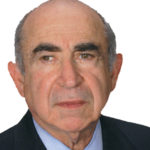One of our regional sales VPs for a disability company would always start out his meeting by saying: “You’ve got to ask to get when it comes to disability insurance. Many times, discussing disability insurance is obvious. When developing a financial plan, it’s obvious that a discussion of how your client’s income would continue if they could not work should be part of that planning process. Many advisors work with clients on insurance planning, but are not considered their financial planner. It’s during many of those conversations that the disability insurance conversation can and should happen.
Life Insurance Planners
The need for disability insurance can be similar to and as important as the need for life insurance.
Income Replacement: Many times the amount of life insurance recommended is based on the income of the primary income earner. There are various formulas to recommend the face amount of insurance, but a popular one is to simply to use 10 to 20 times income. We all know that the likelihood of being disabled is greater than that of dying during the primary income earning years. During the life insurance income replacement conversation comes a great opportunity to discuss disability insurance. Sometimes a life insurance planner may wait until the life insurance is approved and then discuss disability insurance. Those planners prefer this method, as they know that their client is insurable and thus feel more comfortable discussing the disability insurance products.
Business Buy-Sell Life Insurance: Many times the buy-sell agreement will not only contain a provision for death, but also will have a provision for disability. When this is missed or not addressed, your clients may have an unfunded liability that can cause an issue at a later date. Disability buyout (DBO) is a wide open market, as many brokers forget to address this part of a buy-sell agreement. Asking for a copy of the buy-sell agreement can help you to identify when this product is needed.
Business Loans: When a client needs life insurance for a business loan, many times they are an owner of the business. In any business there are expenses that need to be paid regardless of whether the owner is working or not. Business overhead expense (BOE) coverage is an essential product for many small businesses.
Property and Casualty Brokers
Some of our most successful disability insurance producers are actually brokers that focus primarily in property and casualty and have the proper state licenses to discuss life and health products.
Personal lines—new home coverage: When a client seeks out P&C insurance for a new home, asking about the life and disability insurance is a natural follow up question. Buying a new home or upgrading the home is a life event that triggers the need to discuss disability coverage or a review of current policies to see if current coverage is still adequate.
Personal lines—car insurance for children or luxury cars: When a client calls in and wants to put his child on his car insurance, this is another life event moment. When a child is able to obtain a driver’s license, you know that college planning may be the next big financial decision for the family. A review of the primary income earner’s life insurance and disability insurance is essential. A client may have bought disability insurance when they first got married or first bought a home. When a child is old enough to drive is a good indicator that a review of life and disability insurance coverage is due. For many clients, their incomes over the past 16 plus years has greatly increased, yet, many have not increased their life insurance or disability insurance. Also, when a client wants to insure a luxury car can be a nice indicator that their income has increased and that their life and disability coverage should be reviewed.
Commercial lines coverage for a new building or equipment: When a business client is requesting protection to cover the loss of recently acquired assets, this could be a good time to ask about BOE coverage. When a small business owner or practitioner can’t work, the expenses of the business still need to be paid. Asking your client if they own a business overhead expense policy can lead into a discussion about planning for a disability. BOE coverage can provide reimbursement for certain qualified expenses and can help retain certain employees during a time of the business owner’s disability.
Employee Benefit (EB) Brokers
When working with a business on employee benefits, the concentration is often on health insurance and other group insurance products. EB brokers have a great advantage, as many times their work involves consultation on group disability insurance (LTD) and working with key executives and/or the business owner(s). The group disability insurance may not cover the high income earner’s full income. For example, if the group coverage is designed to be 60 percent to a cap of $15,000 per month, those earning more then $300,000 will be capped out. If an owner/executive has a salary of $450,000, plus an annual bonus of $200,000 or a pass through non-passive income of $200,000, the percentage of income replacement is much less than 60 percent. An individual disability policy can help to equalize the coverage of the executive(s). These key members that run the firm and provide its leadership should have benefits equal to or greater than the employees they help to support. If this inequity is not addressed, then the leaders of the firm may not have benefits of equal weight. In addition, if the amount of key members exceed a certain amount, usually five to 10, it may be possible to get guaranteed issue individual disability insurance (GSI plans).
Remember, you have to A-S-K to G-E-T. More important, you want to make sure your clients have the coverage to protect themselves and their families. We hear about disabilities occurring to people every week. Let’s make sure their incomes are protected so that they can concentrate on getting back to good health.


























